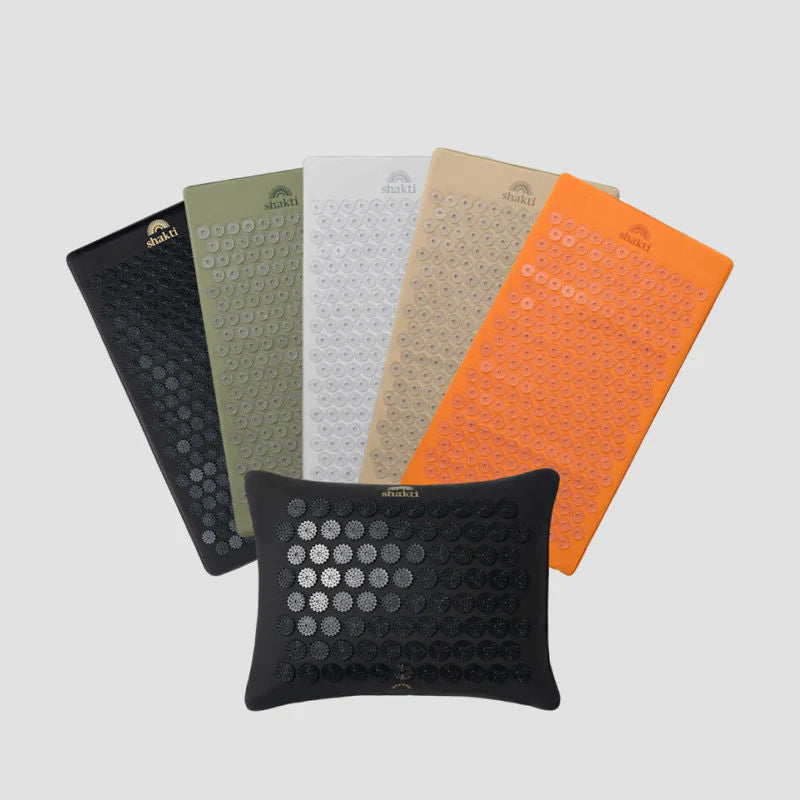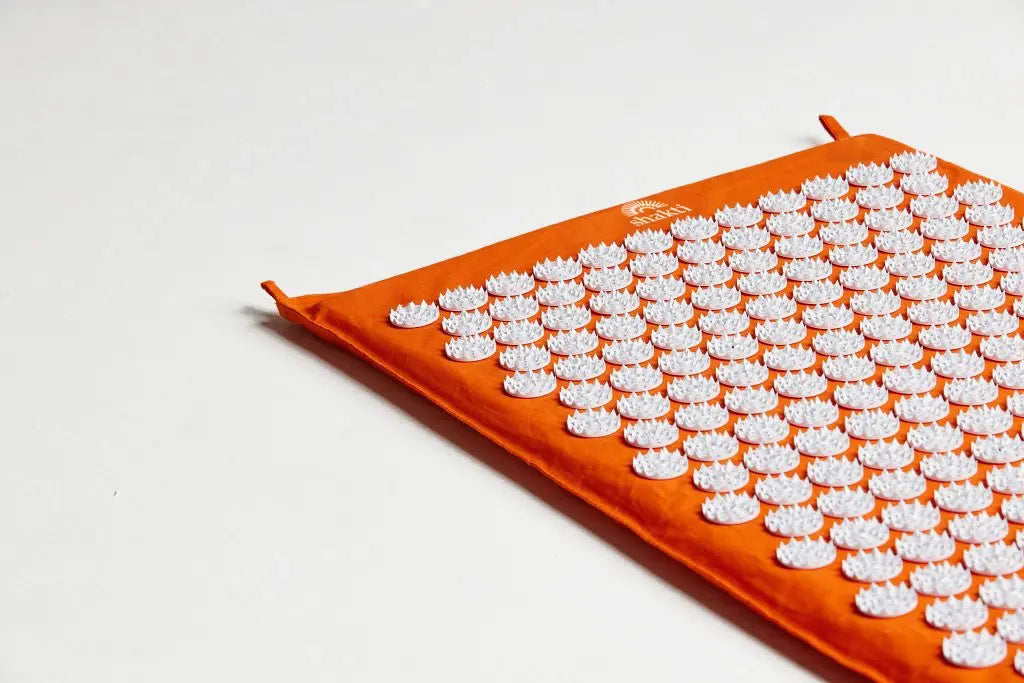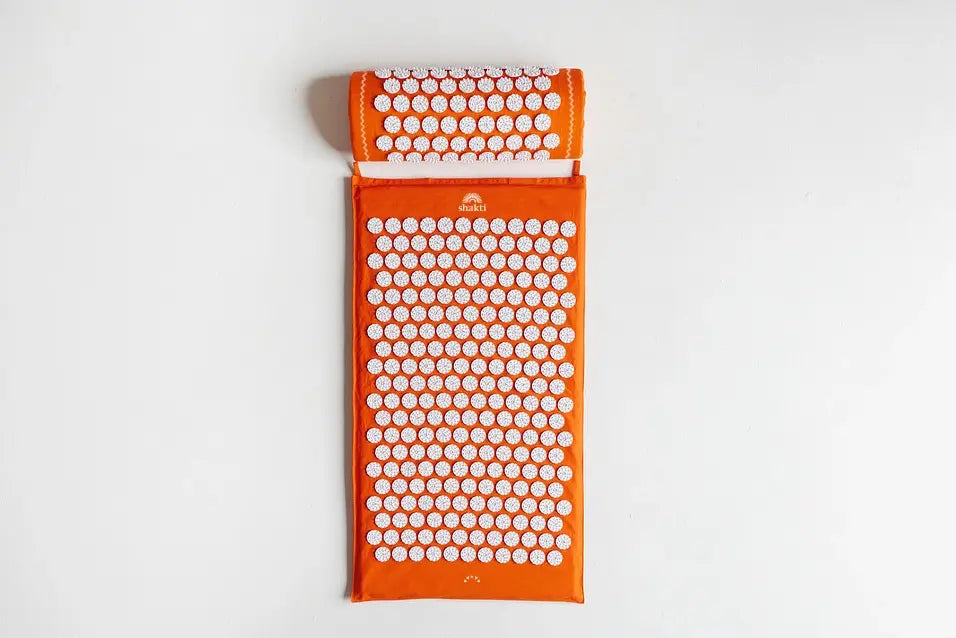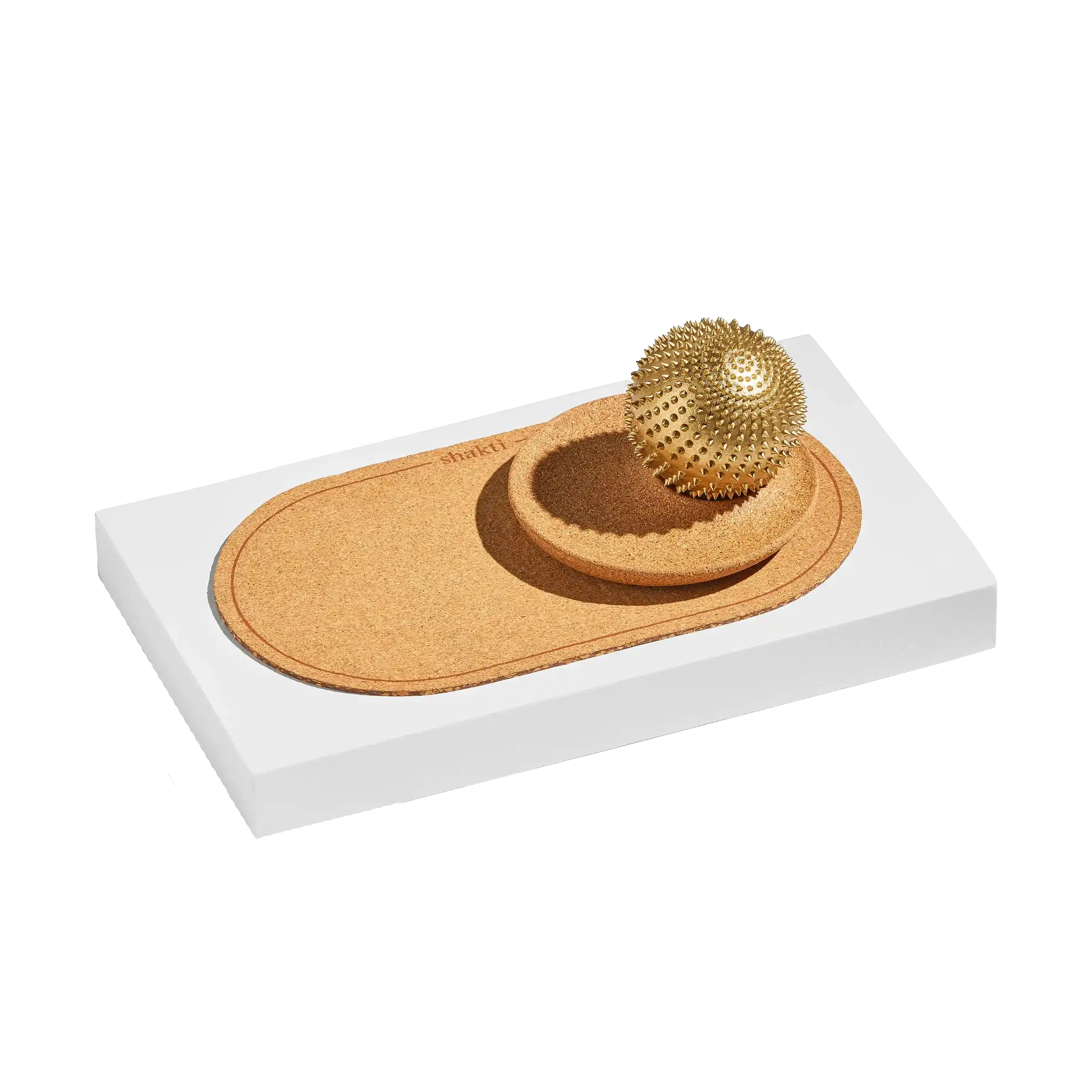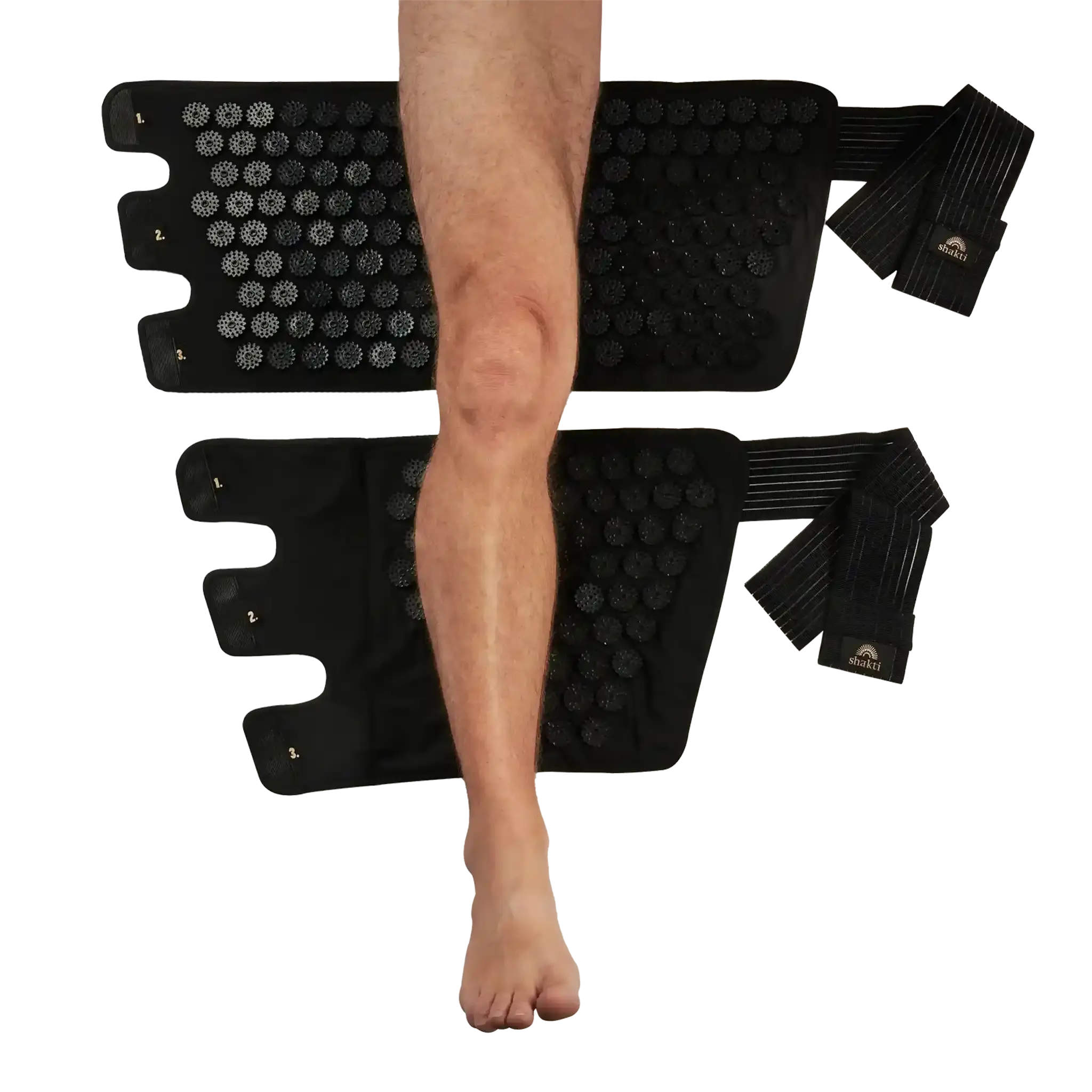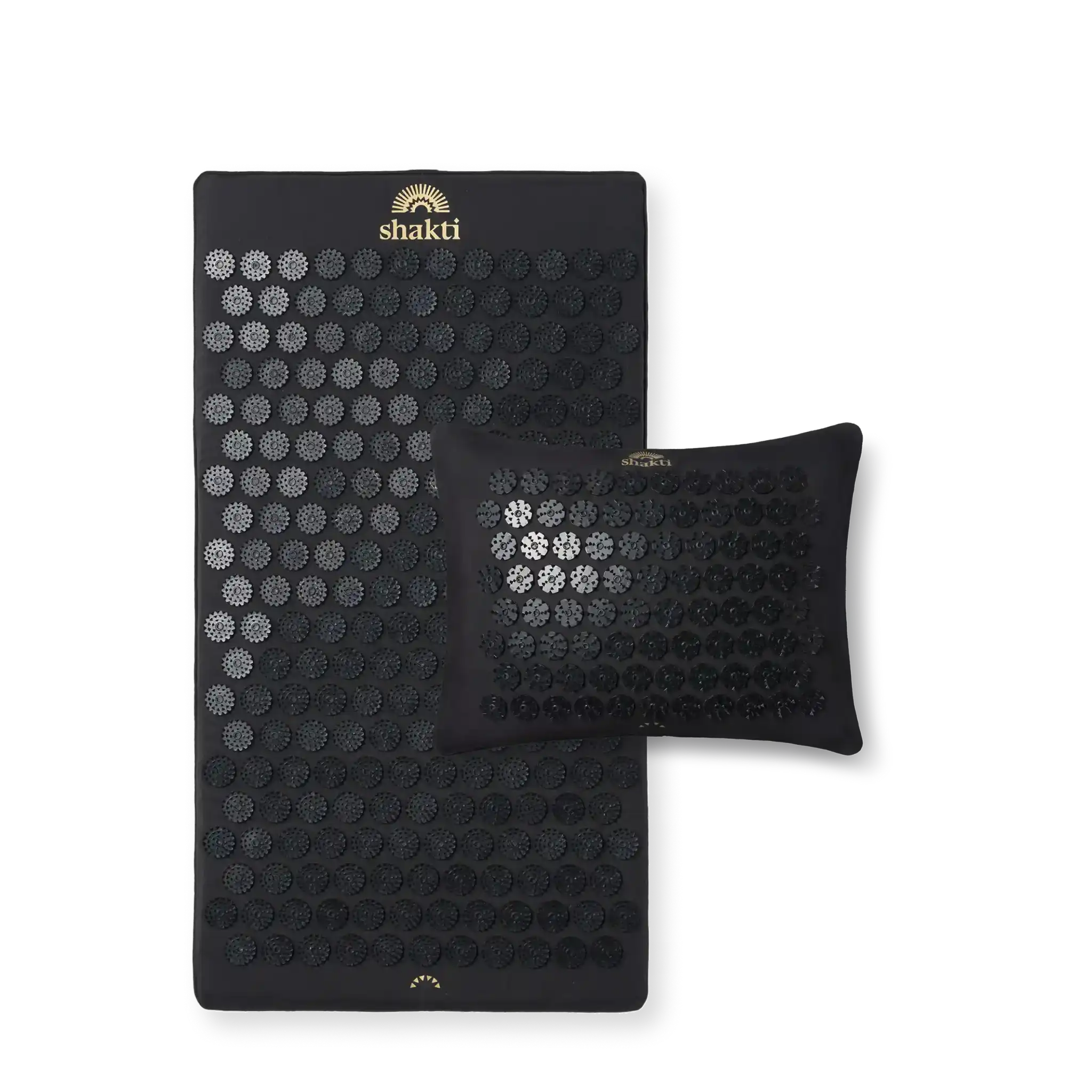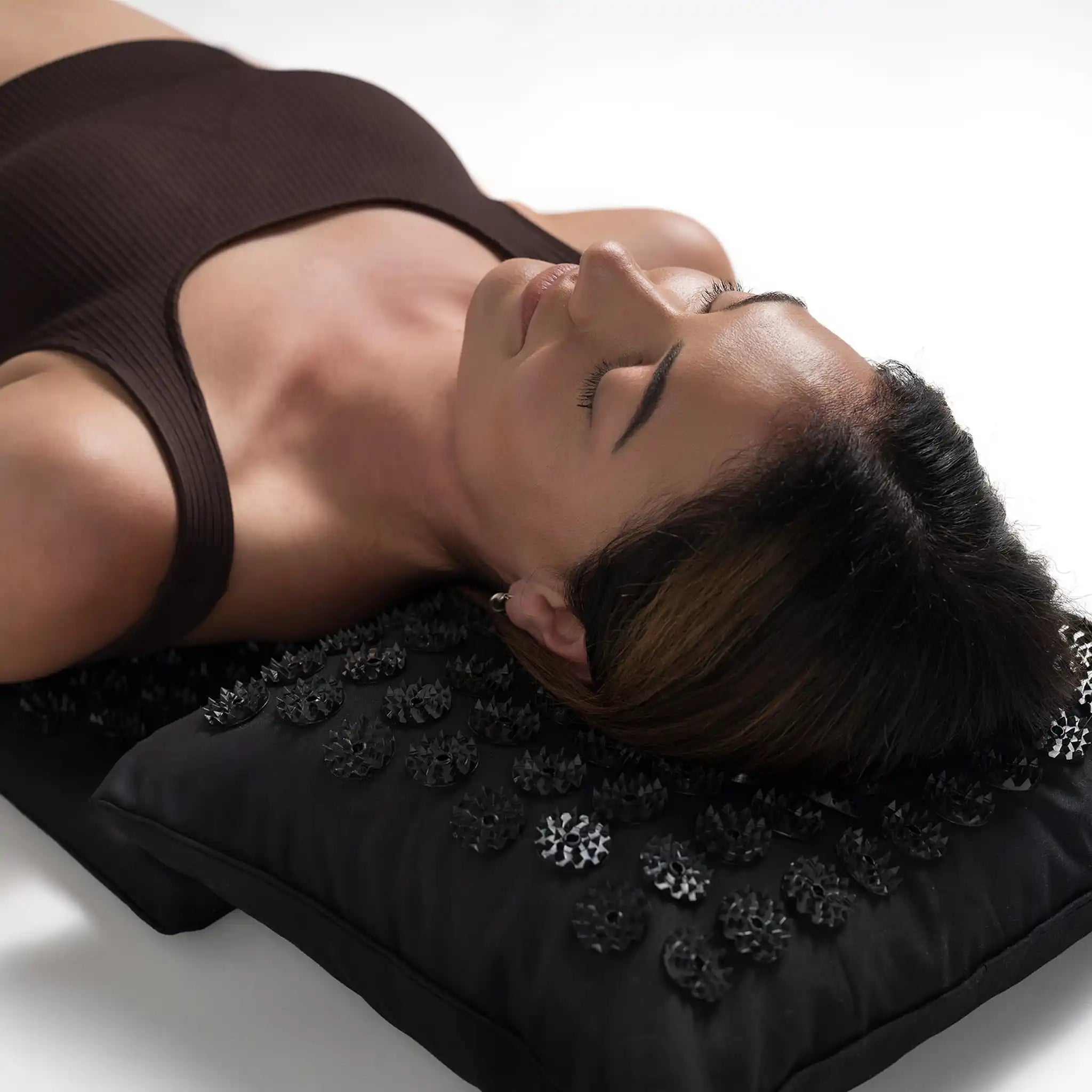Suddenly everything hurts - your legs, back, shoulders, even your hands. Muscle pain all over the body can feel like a diffuse muscle ache, often without any recognizable cause. Sometimes physical overload is behind it, sometimes stress, tension or hormonal changes. The symptoms range from pulling and aching to a feeling of deep exhaustion. In this article, we get to the bottom of the possible triggers, show you what you can look out for and what could be good for your body right now.
Content
1. you have muscle pain all over your body?
2. sore muscles without sport - where the pain can still come from
3. muscle tension or overload: typical signs
4. muscle pain and exhaustion: when the body can no longer rest
5. possible causes - from stress to menopause
6. what helps against muscle pain all over the body?
7. prevention in everyday life: how to relieve your body in the long term
Do you have muscle pain all over your body?
If your body feels heavy, tired or painfully tense, this is often more than just a harmless irritation. Muscle pain all over the body can occur in waves, feel like a sore muscle for no reason or be permanent. The discomfort is often not limited to a specific area. It pulls in the back, stings in the legs, presses in the shoulders or tightens in the arms. Many sufferers report that this type of whole-body pain feels like a "deep tension" that makes everyday life more difficult - especially if there has been no specific physical strain beforehand. This is often accompanied by exhaustion, sleep problems or difficulty concentrating. This often makes it difficult to identify a clear cause. But precisely because muscle pain can be so diffuse throughout the body, it is worth taking a closer look: What is your body signaling to you? And what could have become too much for it at the moment?
Sore muscles without sport - where the pain can still come from
Do you have muscle pain all over your body even though you don't feel overworked? This is exactly what many people experience and understandably wonder how such complaints can arise when there is no workout, heavy lifting or other obvious reason behind it. What many people don't know: Muscle pain can also be caused by invisible strains. This is because your body is working around the clock, even when you are supposedly "just sitting". An awkward posture at your desk, a twisted sleeping position or staying on the sofa for a long time during a series marathon can permanently irritate muscles without you noticing it immediately. It is only hours or even days later that a dull or pulling pressure becomes noticeable and muscle pain develops without sport.
Another possible trigger is stress. Prolonged mental stress often causes your muscles to contract unconsciously - especially in the neck, back, jaw or legs. This constant tension can feel like a widespread muscle tension all over the body that is "just there" from one day to the next, without a physical trigger in the classic sense. Paradoxically, a lack of exercise can also lead to pain. People who do little exercise over a long period of time tend to have poor blood circulation in the muscle tissue. This in turn can lead to muscles feeling stiff, sensitive to pressure or tired - even without previous activity. Last but not least, hormonal fluctuations, weather changes or a lack of nutrition play a role for some people. In these cases, the body reacts sensitively to internal changes and expresses this through muscle complaints that appear to have no specific origin.
The good news is that even if there is no clear cause that can immediately explain such muscle pain all over the body, many of these complaints can often be significantly alleviated with gentle means such as heat, conscious movement and targeted relaxation.
Muscle tension or overload: typical signs
Muscle pain all over the body can manifest itself in different ways. Sometimes it is a pulling pain that extends over several regions, sometimes it is a pressing, almost dull feeling, as if the body has "hardened" internally. Many describe it as a kind of inner muscle ache that can be felt without a specific trigger.
It is typical of muscular overload or tension that the complaints do not occur at specific points, but over a wide area or symmetrically. Shoulders, neck, back, thighs or the muscles in the lower back are frequently affected, i.e. precisely the areas that are often overloaded or permanently tense in everyday life. A feeling of stiffness in the morning or limited mobility can also indicate a muscular cause. Another sign: The symptoms change depending on the type of day or movement. After periods of rest, they often feel worse or even turn into extreme muscle pain all over the body, while gentle movement or heat can bring short-term relief: an indication that tension or a lack of blood circulation could be involved.
If the pain in the muscles is not accompanied by visible swelling, acute inflammation or sudden loss of strength, a functional cause is often obvious.
Muscle pain and exhaustion: when the body can no longer rest
It is not uncommon for sudden muscle pain to occur all over the body together with a feeling of deep exhaustion. You feel limp, irritable, perhaps even listless, and at the same time your muscles feel tense and tight, as if you have overexerted yourself even though you have hardly moved at all. This combination of pain and fatigue can have various causes. Chronic stress is often behind it: The body is then in a state of constant alert. The muscles remain tense, sleep becomes shallower and recovery phases no longer work properly. The result is a feeling of constant stress, which is noticeable both physically and mentally.
A lack of sleep, a nervous system that is out of sync or an unbalanced diet can also be partly responsible. In some phases of life, for example during the menopause, many women report diffuse joint and muscle pain throughout the body in combination with severe fatigue. If you feel that you can no longer rest even though you are actually tired, this may be an indication that your inner stress has become too great. Then it's worth taking a careful look: What is draining your energy? And what could help you get back into your own rhythm?
Possible causes - from stress to menopause
Often it is not a single cause, but the interaction of several factors that causes the discomfort, because muscle pain throughout the body can have many faces and just as many possible causes. One common trigger is chronic stress. If you are under internal pressure for a long period of time, muscles often react with persistent tension. This is not always consciously perceived, but can manifest itself in the form of pain, stiffness or a feeling of "inner restlessness" in the muscles.
Hormonal changes also often contribute to muscle pain throughout the body. Menopause, falling oestrogen levels and other factors affect the metabolism and connective tissue, among other things, and this can cause muscles to react more sensitively to strain or stimuli.
Other possible causes may be
- Lack of exercise or one-sided strain
- Micronutrient deficiencies, e.g. in magnesium or vitamin D
- Weather changes to which the nervous system reacts sensitively
- Sleep problems and lack of regeneration
- Changes in the nervous system or vegetative imbalances
A clear diagnosis is not always possible - especially if there is no visible inflammation or injury. This makes it all the more important to pay attention to what your body is saying: What could be too much for you at the moment? Where are you lacking balance?
What helps against muscle pain all over the body?
If you have pain all over your body, you want one thing above all else: tangible relief. If all your limbs feel tense, tired or simply "overstimulated", small rituals can often help to gently relieve the muscles. It is not important to change everything immediately, but to give your body more rest, movement and regeneration step by step. A first helpful approach is gentle activity. Walks, gentle stretching exercises or calm forms of exercise such as yin yoga can stimulate blood circulation and help to slowly release tension. This is ideal in combination with heat, for example through targeted heat applications in the shoulder, neck or back area. Or perhaps you could simply relax in the bathtub with a few candles and a good book.
An acupressure mat can also provide effective support at such times. The even pressure on the skin promotes blood circulation, activates the tissue and at the same time makes it easier for many people to calm down mentally. Many people find the application particularly beneficial in the evening, when the body is allowed to switch to rest.
Combined with calm music, conscious breathing or a little meditation, you can release not only physical but also mental tension - without much effort, but with a noticeable effect. Many users report that just 15-20 minutes a day can help to gently regulate muscle pain and feel more ease in everyday life again.
Prevention in everyday life: how to relieve your body in the long term
Muscle pain all over the body rarely occurs overnight and it doesn't disappear at the push of a button either. To relieve your body in the long term, you don't need radical changes, but small, consistent habits that fit in well with your everyday life. Exercise is a key component, but in the right dose. If you sit all day, you don't need a marathon, but regular impulses: a few steps during your lunch break, mobilization in the morning or a short stretch after getting up. Even small units can make a big difference if they are done regularly.
Conscious breaks also play an important role. Instead of rushing through the day, it's worth pausing for a moment every now and again - especially when you start to feel the first signs of tension. Whether with breathing exercises, short stretch sessions or 10 minutes on the acupressure mat: these mini time-outs help your nervous system not to remain permanently in "tension mode", which then manifests itself in the form of muscle pain all over the body, exhaustion and chronic fatigue.
Also pay attention to nutrition, fluids and sleep. Not because this is a new rule, but because your body relies on simple resources to regulate itself. The nervous system also benefits from stability, routines and sufficient rest. Long-term relief doesn't start with the next fitness challenge, but with the decision to regularly take care of yourself in a way that suits your life. And that can be as simple as a conscious breath, a few minutes of exercise or the good feeling of listening to your body before it needs to speak up.


